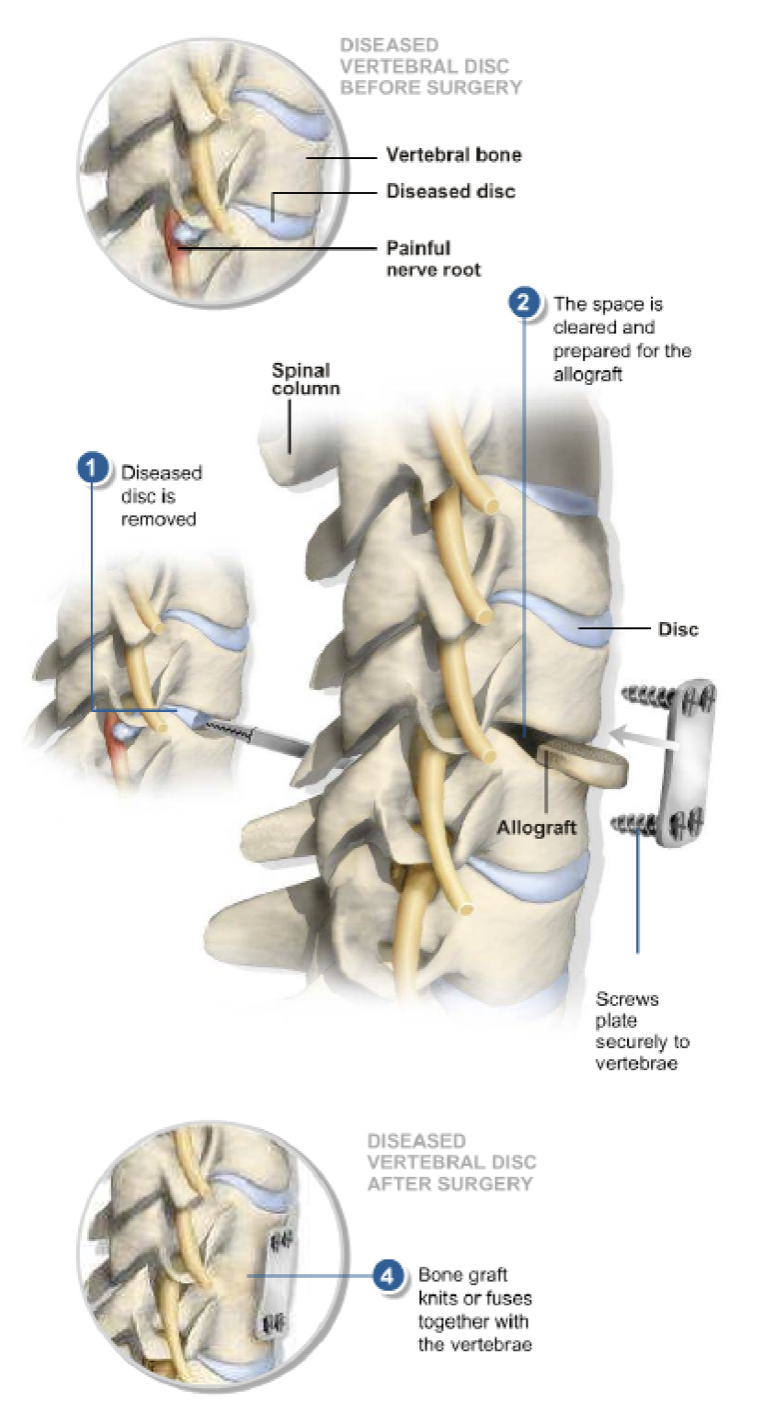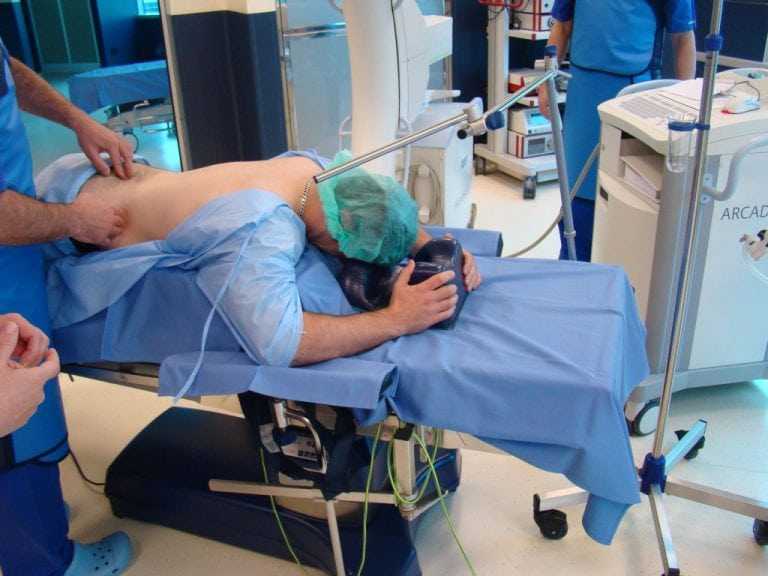After a discectomy, a surgical procedure to remove a herniated disc in the spine, there are certain activities and restrictions that individuals need to follow to ensure proper healing and minimize the risk of complications.
Firstly, it is important to avoid heavy lifting, carrying, or pulling objects that exert excessive strain on the back. The surgery weakens the impacted area, and engaging in such activities can lead to additional injury or re-injury of the spine. Instead, individuals should focus on light exercises and movements that improve flexibility and strengthen the core muscles to support the back.
Similarly, extreme or rapid movements of the spine, such as twisting or bending forcefully, should also be avoided. These movements can strain the healing tissues and put unnecessary pressure on the spine, potentially causing pain and delaying the recovery process. Instead, individuals should practice gentle movements and use proper body mechanics when bending or lifting.
Engaging in high-impact activities, such as running, jumping, or participating in contact sports, should be temporarily avoided. These activities put excessive stress on the spine and can lead to complications or hinder the healing process. Instead, low-impact activities such as swimming, walking, or stationary cycling can be beneficial for maintaining cardiovascular health without compromising the recovery progress.
Maintaining proper posture is crucial in minimizing strain on the spine. Individuals should avoid slouching or sitting for prolonged periods of time. Utilizing ergonomic chairs and supportive cushions may help in maintaining the correct posture and alleviating pressure on the spine.
Lastly, it is important to follow the post-operative rehabilitation plan provided by the healthcare professionals. This may include physical therapy, exercises, and regular check-ups to monitor the progress. Adhering to the prescribed plan is essential in ensuring a successful recovery and preventing complications.
In summary, after a discectomy, individuals should avoid heavy lifting, extreme spinal movements, high-impact activities, maintaining poor posture, and not following a rehabilitation plan. Following these guidelines can promote proper healing, minimize the risk of complications, and ultimately help individuals return to their regular activities in due time.
What are the restrictions after a discectomy?
For the first one month following surgery: Avoid sitting for longer than 15–30 min in any two hour period. No bending, lifting, twisting, pulling or pushing greater than 5 kg. Avoid heavy domestic work such as vacuuming, laundry and making beds.
How far can you walk after discectomy?
Typically, patients are advised to begin with short walks and gradually work up to a few miles. When walking shortly after surgery, it is important to stay on flat surfaces rather than sloped or uneven ground. Some patients may prefer to use a walker or cane if balance is an issue.
How much should I walk after a discectomy?
It is important to let pain be your guide and balance activity with rest early after surgery. During the first two weeks after surgery the walking goal is 1-3 miles per day or walking for 1 hour. You can divide this up during the day as tolerated.
How long does it take nerves to heal after discectomy?
With the portion of the disc that was pushing on the nerve root removed, the pressure is immediately gone, and the nerve can begin healing and returning to normal, painless function. It takes time for the nerve root to heal, sometimes up to a year, but this usually involves a feeling of numbness, not pain.

What is a gynecologist specialist called?
Many physicians specialize in both obstetrics and gynecology to provide comprehensive care to patients. This way, they can address the full spectrum of their patients’ healthcare needs. These physicians are called OB/GYNs.Feb 7, 2020

What does gynecologist do?
A gynecologist diagnoses and treats issues with female reproductive organs. They deal with all aspects of sexual health like preventive care, cancer screenings and physical exams. Some of the services and tests provided are: Pelvic exams and external genital exams.Dec 1, 2022
Is OB-GYN the same as gynecologist?
Physicians who focus on gynecology do not deliver babies or treat pregnant women. They conduct cancer screenings, treat urinary tract issues, and more. Physicians who focus on obstetrics do not treat health issues outside pregnancy. OB/GYNs focus on both areas.
What is another name for an OB-GYN?
The term “OB-GYN” can refer to the doctor, an obstetrician-gynecologist, or to the sciences that the doctor specializes in, which are obstetrics and gynecology.
What is another name for a gynecologist doctor?
Some gynecologists are also obstetricians (OBGYNs).Dec 1, 2022


